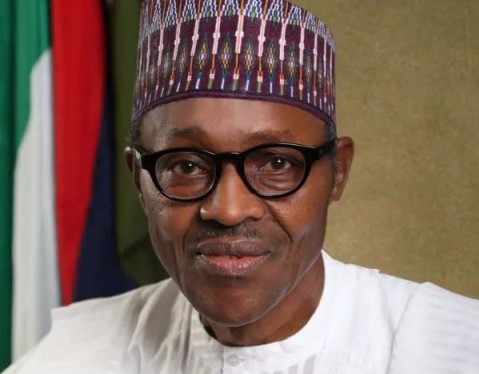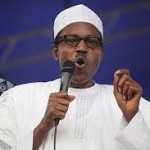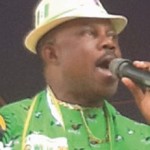OPINION: Nigeria’s Abilities to Consolidate on Little Changes
Featured Contributors/Columnists, Latest Headlines Wednesday, December 30th, 2015
By Prof. R. A. Ipinyomi, University of Ilorin, Nigeria
BALTIMORE, MD (AFRICAN EXAMINER) – It is necessary to acknowledge that 2015 brought some significant changes to the political landscape in Nigeria; rightly or wrongly, depending on where you were when the wind of change blew. Many of us may refuse to accept this simple claim but the people in PDP, who are now finding asylum in different places, would know that “no condition is permanent”, especially in politics. The Buhari we were celebrating in 2015 might be booed in 2016 or defeated and criticised in 2019 elections. Ask the formal NSA, Col Dansuki, and he will tell you there are changes. Similarly ask any of the formal political godfathers and they will tell you they had received less from government for 2015 Christmas. Nevertheless, the focus is to signal to all that “when you fight corruption that corruption fights back”. When you shoot an armed robber that you should be prepared that he may shoot back at you. No change comes cheap or without a fight back. Life is action and reaction. A thief will fight back, and successfully too when he or she is eventually caught, if adequate care in not taken.
For example, it is open knowledge that the armed forces are more active in degrading Boko Haram since the inception of APC regime at the end of May 2015, especially in the North East. What may be less published is the fact that some past politicians are rumoured as refunding at least a little bit of what didn’t belong to them initially but they took away with them wrongly, that the same armed forces are demolishing many illegal refineries in the Niger Delta areas and blocking oil pipeline vandals, that Nigerian Armed forces said that religion has to be practiced with responsibility even in Zaria also, and so on. The fighting back of the insurgents and by corrupt politicians is taking different dimensions. While the insurgents are changing tactics, the politicians are using the economy, social media, and using even the judicial institutions to fight back. We need the spirit of discerning to separate the grains from the shafts, to separate the goat from the sheep and the wheat from the weeds.
But these are not the gains and major changes actually. We are also not addredding the many warning signs already pointing to a potentially dismal Africa and Nigeria economies in 2016. In all Africa a combination of successive bad governance, a gap or disconnection between financial institutions and the right African investors to enhance informed and targeted economic decisions, no planning no goal setting eras -just gambling in the direction of political godfathers, large and growing unemployment, low exchange rate, all of them are indicators for a major recession, sooner or later. Countries like Nigeria, depending largely on oil, and having its price dropping from $120 to posdible below $30 per barrel in 2016, is a big red flag to expect. This is also an indication of a major change. The changes different communities in Nigeria are expecting are as diverse and complex as the number of people living in Nigeria. Our expectations and private demands may have to converge otherwise this government, and any others, would run a programme that seems plausible to them and claim some success at the end. The public must not allow pluralism of ideas and lack of one voice to separate and deny our development. APC is not to please itself but to please Nigeria and international community.
President Buhari, at the swearing in of his ministers, brought out an assessment scale of his government as, “number of people brought out of the poverty line”. This parameter is still very weak and we may modify it for them slightly as “percentage of the population brought out of poverty line”. A significant percentage will be one greater or equal to those his government met. If we use an ordinary number they choose, any number like 1, 2, 3 or higher millions, would have been a significant change. The unemployement or porverty rates are common phenomenal across the nation but populations are different by states and by gender. The universal measures are rates or percentages. For instance 5% of 180 millions is 9 millions and 10% is 18 millions, etc. The goal has to be set not meanly but using standard scales. Hence if APC government can significantly affect the socioeconomic lives of 18 or more million lives of Nigerian youths we would give them a pass mark. This should not be an exchange programme where you make many poorer and a few richer, but that you raise simultaneously both the poor and the rich above the poverty threshold or where you meet them.
The basic necessity of a modern society includes the availability of essential infrastructure and amenities like electricity, portable water, accessible roads and general transportation, housing, affordable standard of living, health care, general retirement plans that cover every citizen and not just a few that arebworking for some governments. The outlook of Nigeria economic life has to change through a well defined education and economic policies. We must reduce the rate of out of school child. We have been babbling around the girl-child education hitherto but without success. Right now both boys and girls are equally out of school, and male child at a higher risk especially in the South East.
By far to be raaised is the average moral value system, which cannot be left at its present extremely low state. For instance, Nigerians drivers are impatient on the roads just as school pupils are no longer as diligent, the politicians need more refresher courses but not where they would earn higher than their teachers and resource persons. Morality has to be measured by rules and regulations, work and pay, offence and punishment, and achievements and corresponding rewards. Nigeria judiciary arm of government must not surrender it’s mandates to private lawyers in town, or allow itself to be intimidated by some international similar agencies. Our standards must be high and fair enough all the time.
Prof. R. A. Ipinyomi.
Related Posts
Short URL: https://www.africanexaminer.com/?p=28994






















